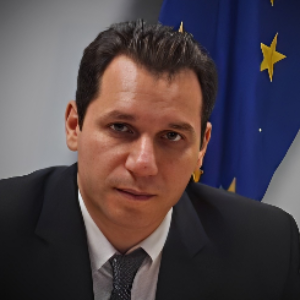Title : Process simulation of in situ catalytic fuel upgrade in aqueous media
Abstract:
Homogeneous catalysis in refinery processes is rare, mainly due to the separation difficulties that emerge. Thus, the very many benefits of the homogeneous catalysis are still kept apart from the petroleum industry. In the present research work, a successful application of heterogenized homogeneous catalysis was implemented taking into advantage its pioneering benefit that is the efficient and convenient recovering of the catalyst. To that end, homogeneous catalysis is introducing to the downstream petroleum industry efficiently and effectively. The effects of partial hydrogen pressure and reaction temperature in biphasic hydrogenation of a hydroformylated fuel catalyzed by water-soluble Ru/TPPTS complex, which was produced in situ by adding RuCl3?xH2O catalyst precursor to TPPTS (TPPTS = P[m-C6H4SO3Na]3, trisodium salt of m-trisulfonated triphenyl phosphine), were thoroughly examined. Furthermore, the chemical process has been modeled and simulated based upon cubic equations of states (CEOS) modifications employing PR78 CEOS, Twu’s alpha function and vdW mixing rules. RuCl3/TPPTS catalytic system proved to be an effective catalyst for fuel upgrading process with particularly high conversion of the hydroformylated fuel (98.9%). Taking into consideration the complexity of the substrate composition and the groundbreaking features of the proposed fuel upgrading chemical process, the simulation model managed to develop a complete phase behaviour of the fuel as well as to achieve an adequate AARD from the experimental data; giving the opportunity for a scale-up study of the process. The final upgraded fuel could probably replace from the refinery blended gasoline pools the toxic gasoline ether oxygenates (GEOs) such as ethyl tert-butyl ether, methyl tert-butyl ether, tert-amyl methyl ether, with an in situ and an environmentally benign catalytic process.



